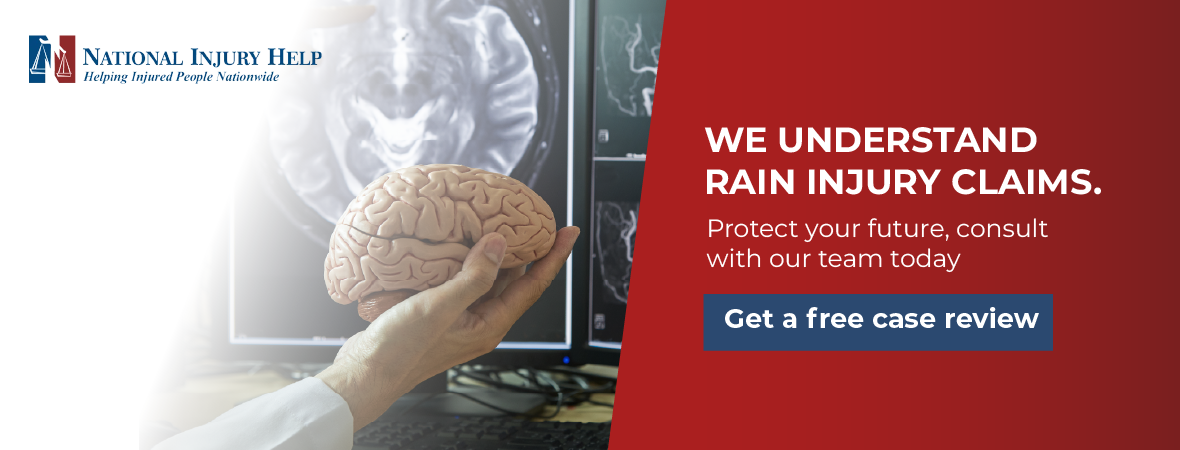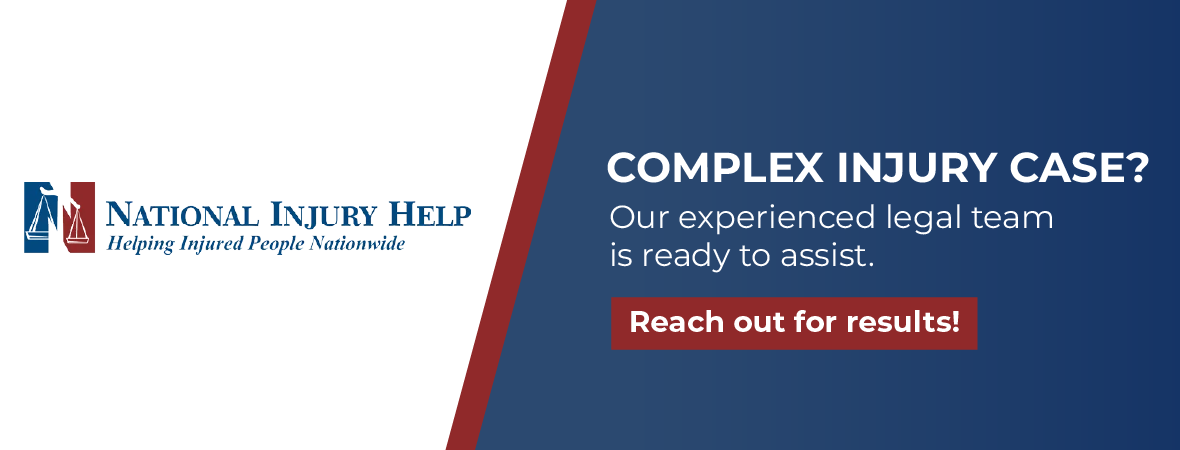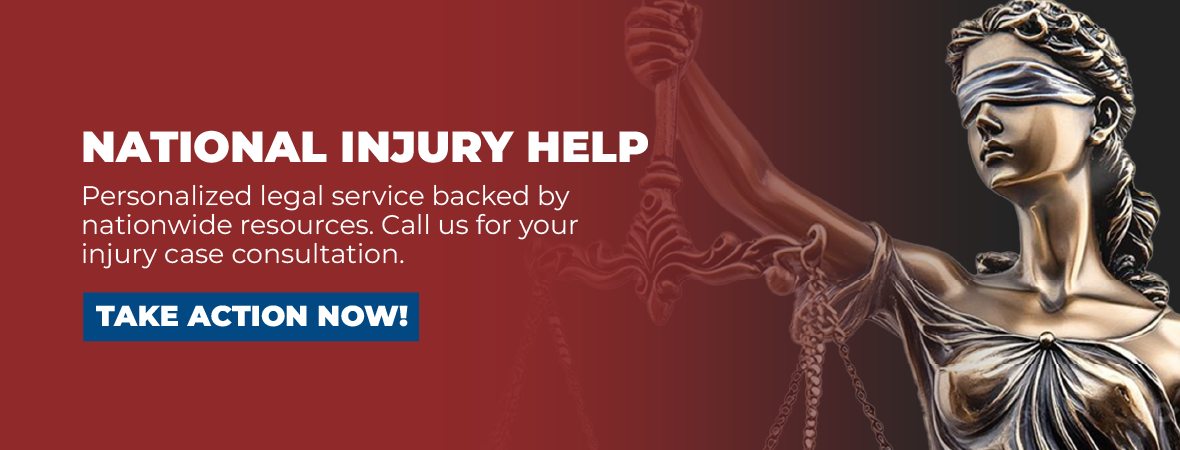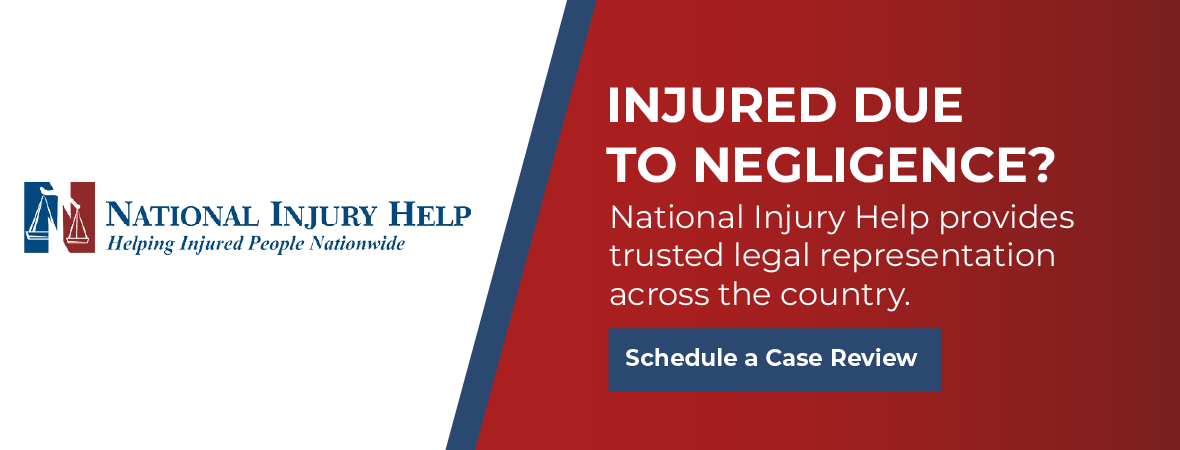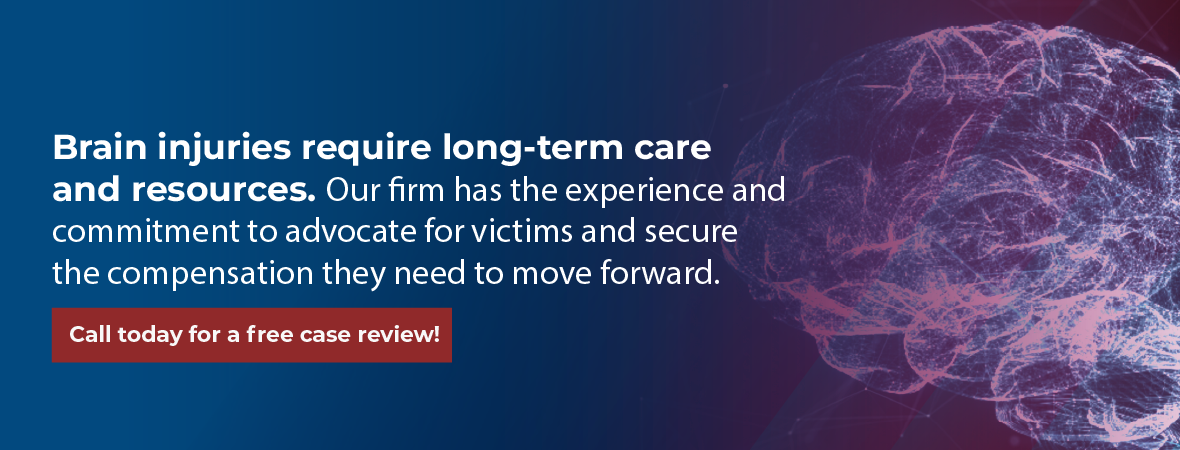- Home
- Accident & Injury
- Areas We Serve
- Arizona
- Arizona
- Avondale
- Avondale Personal Injury Lawyer
- Avondale Car Accident Lawyer
- Avondale Truck Accident Lawyer
- Avondale Bicycle Accident Lawyer
- Avondale Pedestrian Accident Lawyer
- Avondale Motorcycle Accident Lawyer
- Avondale Rideshare Accident Lawyer
- Avondale Wrongful Death Attorney
- Avondale Dog Bite Lawyer
- Avondale Brain Injury Attorney
- Buckeye
- Buckeye Personal Injury Lawyer
- Buckeye Car Accident Lawyer
- Buckeye Truck Accident Lawyer
- Buckeye Motorcycle Accident Lawyer
- Buckeye Bicycle Accident Lawyer
- Buckeye Pedestrian Accident Lawyer
- Buckeye Rideshare Accident Lawyer
- Buckeye Wrongful Death Attorney
- Buckeye Dog Bite Lawyer
- Buckeye Brain Injury Attorney
- Casa Grande
- Casa Grande Personal Injury Lawyer
- Casa Grande Car Accident Lawyer
- Casa Grande Truck Accident Lawyer
- Casa Grande Motorcycle Accident Lawyer
- Casa Grande Bicycle Accident Lawyer
- Casa Grande Pedestrian Accident Lawyer
- Casa Grande Rideshare Accident Lawyer
- Casa Grande Wrongful Death Attorney
- Casa Grande Brain Injury Attorney
- Casa Grande Dog Bite Lawyer
- Chandler
- Chandler Personal Injury Lawyer
- Chandler Car Accident Lawyer
- Chandler Truck Accident Lawyer
- Chandler Motorcycle Accident Lawyer
- Chandler Bicycle Accident Lawyer
- Chandler Rideshare Accident Lawyer
- Chandler Pedestrian Accident Lawyer
- Chandler Wrongful Death Attorney
- Chandler Dog Bite Lawyer
- Chandler Brain Injury Attorney
- Florence
- Florence Personal Injury Lawyer
- Florence Car Accident Lawyer
- Florence Truck Accident Lawyer
- Florence Motorcycle Accident Lawyer
- Florence Bicycle Accident Lawyer
- Florence Pedestrian Accident Lawyer
- Florence Rideshare Accident Lawyer
- Florence Dog Bite Accident Lawyer
- Florence Brain Injury Attorney
- Florence Wrongful Death Attorney
- Gilbert
- Gilbert Personal Injury Lawyer
- Gilbert Car Accident Lawyer
- Gilbert Truck Accident Lawyer
- Gilbert Motorcycle Accident Lawyer
- Gilbert Bicycle Accident Lawyer
- Gilbert Pedestrian Accident Lawyer
- Gilbert Rideshare Accident Lawyer
- Gilbert Wrongful Death Attorney
- Gilbert Dog Bite Lawyer
- Gilbert Brain Injury Attorney
- Glendale
- Glendale Personal Injury Lawyer
- Glendale Car Accident Lawyer
- Glendale Truck Accident Lawyer
- Glendale Motorcycle Accident Lawyer
- Glendale Bicycle Accident Lawyer
- Glendale Pedestrian Accident Lawyer
- Glendale Rideshare Accident Lawyer
- Glendale Wrongful Death Attorney
- Glendale Dog Bite Lawyer
- Glendale Brain Injury Attorney
- Goodyear
- Goodyear Personal Injury Lawyer
- Goodyear Car Accident Lawyer
- Goodyear Truck Accident Lawyer
- Goodyear Motorcycle Accident Lawyer
- Goodyear Bicycle Accident Lawyer
- Goodyear Rideshare Accident Lawyer
- Goodyear Pedestrian Accident Lawyer
- Goodyear Wrongful Death Attorney
- Goodyear Brain Injury Attorney
- Goodyear Dog Bite Lawyer
- Mesa
- Peoria
- Phoenix
- Phoenix Personal Injury Lawyer
- Phoenix Car Accident Lawyer
- Phoenix Truck Accident Lawyer
- Phoenix Motorcycle Accident Lawyer
- Phoenix Bicycle Accident Lawyer
- Phoenix Pedestrian Accident Lawyer
- Phoenix Rideshare Accident Lawyer
- Phoenix Wrongful Death Attorney
- Phoenix Dog Bite Lawyer
- Phoenix Brain Injury Attorney
- Scottsdale
- Scottsdale Personal Injury Lawyer
- Scottsdale Car Accident Lawyer
- Scottsdale Truck Accident Lawyer
- Scottsdale Motorcycle Accident Lawyer
- Scottsdale Bicycle Accident Lawyer
- Scottsdale Pedestrian Accident Lawyer
- Scottsdale Rideshare Accident Lawyer
- Scottsdale Wrongful Death Attorney
- Scottsdale Brain Injury Attorney
- Scottsdale Dog Bite Lawyer
- Surprise
- Surprise Personal Injury Lawyer
- Surprise Car Accident Lawyer
- Surprise Truck Accident Lawyer
- Surprise Motorcycle Accident Lawyer
- Surprise Bicycle Accident Lawyer
- Surprise Pedestrian Accident Lawyer
- Surprise Rideshare Accident Lawyer
- Surprise Wrongful Death Attorney
- Surprise Dog Bite Lawyer
- Surprise Brain Injury Attorney
- Tempe
- Tucson
- Yuma
- California
- Washington
- Yakima
- Vancouver
- Vancouver Personal Injury Lawyer
- Vancouver Car Accident Lawyer
- Vancouver Brain Injury Attorney
- Vancouver Truck Accident Lawyer
- Vancouver Motorcycle Accident Lawyer
- Vancouver Bicycle Accident Lawyer
- Vancouver Pedestrian Accident Lawyer
- Vancouver Rideshare Accident Lawyer
- Vancouver Wrongful Death Attorney
- Vancouver Dog Bite Lawyer
- Washington State
- Washington State Personal Injury
- Washington State Car Accident Lawyer
- Washington State Brain Injury Attorney
- Washington State Truck Accident Lawyer
- Washington State Motorcycle Accident Lawyer
- Washington State Bicycle Accident Lawyer
- Washington State Pedestrian Accident Lawyer
- Washington State Rideshare Accident Lawyer
- Washington State Wrongful Death Attorney
- Washington State Dog Bite Lawyer
- Spokane Valley
- Personal Injury in Spokane Valley
- Spokane Valley Car Accident Lawyer
- Spokane Valley Brain Injury Attorney
- Spokane Valley Truck Accident Claims
- Spokane Valley Motorcycle Accident Lawyer
- Spokane Valley Bicycle Accident Lawyer
- Spokane Valley Pedestrian Accident Lawyer
- Spokane Valley Rideshare Accident Lawyer
- Spokane Valley Wrongful Death Attorney
- Spokane Valley Dog Bite Lawyer
- Tacoma
- Spokane
- Spokane Personal Injury Lawyer
- Car Accident Lawyer in Spokane
- Spokane Brain Injury Attorney
- Spokane Truck Accident Lawyer
- Spokane Motorcycle Accident Lawyer
- Spokane Bicycle Accident Lawyer
- Spokane Rideshare Accident Lawyer
- Spokane Pedestrian Accident Lawyer
- Spokane Wrongful Death Attorney
- Spokane Dog Bite Lawyer
- Seattle
- Seattle Personal Injury Lawyer
- Seattle Car Accident Lawyer
- Seattle Brain Injury Attorney
- Seattle Truck Accident Lawyer
- Seattle Motorcycle Accident Lawyer
- Seattle Bicycle Accident Lawyer
- Seattle Pedestrian Accident Lawyer
- Seattle Rideshare Accident Lawyer
- Seattle Wrongful Death Attorney
- Seattle Dog Bite Lawyer
- Renton
- Auburn
- Bellingham
- Bellingham Personal Injury Lawyer
- Bellingham Car Accident Lawyer
- Bellingham Brain Injury Attorney
- Bellingham Truck Accident Lawyer
- Bellingham Motorcycle Accident Lawyer
- Bellingham Bicycle Accident Lawyer
- Bellingham Pedestrian Accident Lawyer
- Bellingham Rideshare Accident Lawyer
- Bellingham Wrongful Death Attorney
- Bellingham Dog Bite Lawyer
- Redmond
- Redmond Personal Injury Attorney
- Redmond Car Accident Lawyer
- Redmond Brain Injury Attorney
- Redmond Truck Accident Lawyer
- Redmond Motorcycle Accident Lawyer
- Redmond Bicycle Accident Lawyer
- Redmond Pedestrian Accident Lawyer
- Redmond Rideshare Accident Lawyer
- Redmond Wrongful Death Attorney
- Redmond Dog Bite Lawyer
- Bellevue
- Bellevue Personal Injury Lawyer
- Bellevue Car Accident Lawyer
- Bellevue Brain Injury Attorney
- Bellevue Truck Accident Lawyer
- Bellevue Bicycle Accident Lawyer
- Bellevue Motorcycle Accident Lawyer
- Bellevue Pedestrian Accident Lawyer
- Bellevue Rideshare Accident Lawyer
- Bellevue Wrongful Death Attorney
- Bellevue Dog Bite Lawyer
- Kent
- Federal Way
- Federal Way Personal Injury Lawyer
- Federal Way Car Accident Lawyer
- Federal Way Brain Injury Attorney
- Federal Way Truck Accident Lawyer
- Federal Way Motorcycle Accident Lawyer
- Federal Way Bicycle Accident Lawyer
- Federal Way Pedestrian Accident Lawyer
- Federal Way Rideshare Accident Lawyer
- Federal Way Wrongful Death Attorney
- Federal Way Dog Bite Lawyer
- Kirkland
- Kirkland Personal Injury Lawyer
- Kirkland Car Accident Lawyer
- Kirkland Brain Injury Lawyer
- Kirkland Truck Accident Lawyer
- Kirkland Motorcycle Accident Lawyer
- Kirkland Bicycle Accident Lawyer
- Kirkland Pedestrian Accident Lawyer
- Kirkland Rideshare Accident Lawyer
- Kirkland Wrongful Death Attorney
- Kirkland Dog Bite Lawyer
- Everett
- Arizona
- Defective Drugs
- Defective Products
- Other Case Types
- Blog
- Contact Us
Hablamos Espanol - Call 24/7 1 (800) 214-1010
At National Injury Help, we’ll handle the legal complexities of your brain injury claim so you can focus on healing and rebuilding your life. Let us be your advocate during this challenging time and work tirelessly to secure the results you need to move forward.
A traumatic brain injury can change everything in an instant, your ability to work, think clearly, enjoy life, or even care for yourself. Whether it was caused by a car crash on the I-10 near downtown Phoenix, a slip and fall at a Tucson grocery store, or a workplace accident along Route 89, head trauma often leads to serious and long-term consequences.
In Arizona, brain injury victims have the right to seek compensation when their injury is caused by someone else’s negligence, but doing so requires legal knowledge, persistence, and the support of a dedicated advocate.
If you or a loved one has suffered a serious brain injury, working with an experienced Arizona brain injury attorney is one of the most important decisions you can make. These cases are often complex, medically intensive, and emotionally draining. Insurance companies may try to minimize the injury, question your symptoms, or push for a fast settlement that doesn’t come close to covering your long-term needs. The right lawyer can help you push back and build a claim that reflects the true cost of your recovery.
The Impact of a Traumatic Brain Injury
A brain injury isn’t always visible, but the effects can be devastating and lifelong. Even a seemingly “mild” concussion can lead to lasting impairments that disrupt every part of your life. More severe trauma can result in permanent disability, cognitive decline, or the need for around-the-clock care.
Common effects of a TBI include:
- Memory loss, confusion, or difficulty concentrating
- Headaches, dizziness, nausea, or light sensitivity
- Emotional changes like depression, anxiety, or mood swings
When these symptoms interfere with your ability to earn a living or live independently, pursuing compensation isn’t just helpful, it’s essential.
You Deserve Fair Compensation for Your Recovery
The cost of a brain injury can quickly add up. Hospital stays, neurological testing, rehabilitation, lost wages, and home modifications can leave families overwhelmed. Whether you’re pursuing a Tucson head trauma compensation claim or working with a Phoenix traumatic brain injury lawyer, your legal strategy should be tailored to your medical and financial needs.
In the sections below, we’ll walk you through how Arizona handles brain injury claims, who may be held liable, what damages you can recover, and how a trusted legal professional can help you every step of the way.
Understanding Brain Injuries: Types, Severity, and Long-Term Effects
Brain injuries are among the most complex and life-altering injuries a person can suffer. Unlike broken bones or soft tissue injuries, the effects of a traumatic brain injury can be invisible, unpredictable, and permanent. Recovery often requires intensive therapy, expensive medical care, and significant lifestyle adjustments.
Whether the injury occurred in a car crash on the Loop 202 in Phoenix or from a fall at a workplace in Tucson, it’s critical to understand the nature of brain injuries and why they require skilled legal and medical support.
What Is a Traumatic Brain Injury?
A traumatic brain injury occurs when an external force, such as a blow, jolt, or penetrating object, disrupts the normal function of the brain. TBIs can range from mild concussions to severe damage that results in permanent cognitive or physical disability. Even injuries classified as “mild” can lead to lasting symptoms if not properly treated.
Brain injuries are typically categorized by their severity:
- Mild TBI: Often referred to as a concussion. Symptoms may include headache, confusion, fatigue, dizziness, and brief loss of consciousness.
- Moderate TBI: Characterized by loss of consciousness for several minutes to hours, confusion for days or weeks, and more serious cognitive or motor impairments.
- Severe TBI: Involves extended unconsciousness or coma and may result in long-term or permanent disability.
Types of Brain Injuries
There are several types of brain injuries, each with unique causes and consequences. A skilled Arizona brain injury attorney will work with medical experts to determine the nature and extent of your injury, which is critical in pursuing compensation.
Common types of TBIs include:
- Concussion: The most common form, usually resulting from a blow to the head or sudden movement that causes the brain to shake inside the skull.
- Contusion: A bruise on the brain caused by a direct impact, often leading to bleeding and swelling.
- Coup-contrecoup injury: When the brain hits both sides of the skull during a violent impact, such as a high-speed car crash.
- Diffuse axonal injury: Caused by rotational forces, this type affects the brain’s connective fibers and can result in widespread dysfunction or coma.
- Penetrating injury: Occurs when an object pierces the skull and damages brain tissue directly, such as in violent assaults or serious construction accidents.
Each type of injury presents unique treatment challenges and long-term consequences, which must be factored into any legal claim for damages.
Common Causes of Brain Injuries
Brain injuries can happen in almost any setting, from busy intersections in Phoenix to quiet suburban streets in Glendale. Some of the most common causes include:
- Motor vehicle accidents: Crashes involving cars, motorcycles, or trucks remain a leading cause of brain injuries in Arizona.
- Falls: Slips, trips, and falls, especially in workplaces or public spaces, often lead to concussions or more severe brain trauma.
- Sports injuries: Contact sports like football, boxing, and even youth athletics can lead to repeated head trauma.
- Assaults: Violent attacks and domestic violence can also result in blunt force trauma to the head.
- Workplace accidents: Especially in construction zones or industrial areas, falling objects or dangerous conditions can lead to catastrophic head injuries.
Long-Term Effects of a TBI
Brain injuries often lead to more than short-term medical bills—they can result in profound, lasting changes in a person’s life. Long-term effects may include:
- Cognitive impairments: Memory loss, difficulty concentrating, and trouble with language or processing information.
- Emotional and behavioral changes: Mood swings, irritability, depression, anxiety, or personality changes.
- Physical limitations: Impaired coordination, chronic headaches, fatigue, and sensory issues such as light or noise sensitivity.
These outcomes don’t just affect the injured individual; they impact entire families. That’s why victims pursuing Tucson head trauma compensation or consulting a Phoenix traumatic brain injury lawyer need to account for future care needs and the full scope of emotional and financial losses.
Understanding the true nature and impact of brain injuries is the first step toward recovery and toward building a strong personal injury claim. In the next section, we’ll explore the most common causes of brain injuries in Arizona and how fault is determined in these complex cases.
Common Causes of Brain Injuries in Arizona
Brain injuries can happen anywhere, but certain situations and environments increase the risk significantly. In Arizona, traumatic brain injuries often result from preventable accidents linked to negligence or unsafe conditions.
Whether you’re commuting along I-10 in Phoenix, hiking in Sabino Canyon near Tucson, or working at a construction site in Mesa, the potential for a serious head injury is very real. Knowing the most common causes can help victims understand how liability is established and when to seek legal help from an experienced Arizona brain injury attorney.
Motor Vehicle Accidents
Car, truck, and motorcycle accidents are the leading cause of brain injuries in Arizona and across the country. The force of a collision, particularly at high speeds, can cause the brain to strike the inside of the skull or tear delicate nerve fibers. This type of trauma is often seen in accidents along major roadways such as US-60, Loop 101, and I-17.
Common vehicle-related causes of TBIs include:
- Rear-end collisions that cause whiplash and concussions
- Motorcycle accidents with no helmet use
- Pedestrian or bicycle accidents involving distracted drivers
- Rollover crashes and multi-car pileups
Victims of vehicle-related TBIs may experience mild to severe symptoms, and injuries are often exacerbated by a delay in treatment or diagnosis.
Falls and Slip & Fall Accidents
Falls are a major cause of TBIs, especially among older adults and workers in high-risk environments. A fall from a ladder on a construction site or a slip on a wet grocery store floor can cause a skull fracture, concussion, or more serious brain trauma.
Common scenarios include:
- Slipping on unmarked spills in stores or restaurants
- Tripping on uneven sidewalks or poorly maintained staircases
- Falling from scaffolding or ladders at construction sites
In many of these cases, the property owner or business may be held liable under Arizona premises liability laws.
Workplace Accidents
Arizona’s construction, manufacturing, and agriculture industries place workers at elevated risk for head injuries. Falling tools, collapsing scaffolds, or improper safety equipment can all lead to severe trauma.
Workers suffering from brain injuries may be eligible for workers’ compensation, but in cases involving negligence or unsafe job sites, a third-party personal injury claim may also be appropriate. An Arizona brain injury attorney can evaluate your legal options and help pursue additional compensation beyond workers’ comp.
Sports and Recreational Injuries
From youth football leagues in Chandler to extreme sports activities in Sedona, sports-related head trauma is increasingly common. Concussions are especially frequent in contact sports like football, soccer, and wrestling. Repeated head impacts, even if mild, can lead to chronic traumatic encephalopathy or long-term cognitive decline.
Parents and athletes should be aware that schools, coaches, or sports organizations may be liable if they fail to take proper precautions or ignore signs of injury.
Assault and Physical Violence
Some TBIs are the result of intentional harm, such as physical assaults or domestic violence. These injuries may involve criminal charges, but victims can also pursue civil claims for damages. A lawyer can help navigate both legal pathways to seek justice and financial recovery.
In the next section, we’ll cover the signs and symptoms of brain injuries and why early diagnosis is so crucial to both your health and your legal claim.
Signs and Symptoms of a Brain Injury
Recognizing the signs and symptoms of a brain injury is essential to getting prompt medical treatment and preserving your legal rights. Some symptoms may appear immediately after the trauma, while others can take hours or even days to develop.
In many Arizona cases, whether the injury happened in a crash on Loop 303 in Glendale or during a fall in a Tucson warehouse, the full extent of a traumatic brain injury may not be obvious at first. That’s why early intervention, medical documentation, and awareness of symptoms are all critical.
Physical Symptoms
The physical effects of a brain injury can range from subtle to severe. Even a mild concussion can cause symptoms that interfere with everyday activities, and more serious TBIs often require emergency medical care and long-term rehabilitation.
Common physical symptoms include:
- Headaches or pressure in the head
- Dizziness or balance problems
- Nausea or vomiting
- Sensitivity to light or noise
- Blurred vision or ringing in the ears
In moderate to severe cases, victims may lose consciousness or experience seizures, convulsions, or weakness in the limbs, signs that require immediate emergency care.
Cognitive and Emotional Symptoms
TBIs can also disrupt a person’s ability to think clearly, regulate emotions, and perform tasks they once handled with ease. These symptoms may not be as visible but can be just as debilitating, particularly for those trying to return to work, school, or daily responsibilities.
Watch for signs such as:
- Memory problems or confusion
- Difficulty concentrating or processing information
- Mood swings or irritability
- Anxiety, depression, or sudden personality changes
- Sleep disturbances, including insomnia or excessive drowsiness
Why Symptom Documentation Matters
If you’re pursuing a personal injury claim with the help of a Phoenix traumatic brain injury lawyer or seeking Tucson head trauma compensation, thorough medical records are vital. Even if symptoms seem minor, documenting every sign and following up with a neurologist or specialist can help prove the severity of your injury and support your claim for compensation.
In the next section, we’ll explore how liability is determined in Arizona brain injury cases and who may be held responsible for your damages.
Legal Rights and Liability in Brain Injury Cases
If you or a loved one has suffered a traumatic brain injury due to someone else’s negligence, you may have the right to pursue compensation under Arizona law. Brain injury cases often involve complex liability issues, especially when multiple parties or corporate entities are involved.
Whether the injury happened on a construction site in Mesa, in a car crash on I-10 through Phoenix, or in a slip-and-fall accident in a Tucson shopping center, understanding your legal rights is critical to building a strong case.
Arizona Brain Injury Attorney Explains Your Legal Right to Compensation
Arizona law gives personal injury victims the right to seek compensation when another party’s negligence, recklessness, or intentional wrongdoing caused their injuries. In a brain injury case, this means proving that another person or entity failed to uphold a legal duty and that this failure directly caused your TBI.
To establish a valid personal injury claim, you must prove:
- Duty of Care: The defendant owed you a legal duty (e.g., to drive safely, maintain safe property conditions, or provide proper supervision).
- Breach of Duty: The defendant failed to meet that duty (e.g., ran a red light or ignored safety regulations).
- Causation: That breach directly caused your injury.
- Damages: You suffered measurable harm, such as medical bills, lost wages, or long-term disability.
An experienced Arizona brain injury attorney will help you gather evidence, work with medical experts, and demonstrate these elements in your claim.
Who Can Be Held Liable?
Brain injury cases often involve multiple potentially liable parties. Identifying everyone responsible ensures you pursue the full amount of compensation available.
Depending on how the injury occurred, liable parties may include:
- Negligent drivers: In auto or motorcycle accidents
- Employers: In the workplace or on a construction site injuries
- Property owners: In premises liability cases involving unsafe conditions
- Product manufacturers: In cases involving defective helmets, tools, or safety gear
- Sports organizations, schools, or coaches: For failing to prevent or properly respond to sports-related TBIs
In some cases, both individuals and corporations can be jointly liable, and each may be required to contribute to a settlement or judgment.
Arizona Brain Injury Attorney Explains Comparative Negligence
Arizona follows a pure comparative negligence rule. This means that even if you were partially at fault for the incident that caused your brain injury, you can still recover compensation. However, your total recovery will be reduced by your percentage of fault. For example, if you are awarded $500,000 but found to be 20% at fault, your final compensation would be $400,000.
This rule applies even in cases where the victim bears more than 50% of the blame, unlike in some states that bar recovery after that threshold. However, insurance companies will often try to shift as much blame as possible to reduce payouts, which is why legal representation is essential.
Proving Liability in Brain Injury Cases
Establishing liability in a brain injury claim involves an in-depth investigation and expert analysis. Your attorney will work to collect and preserve critical evidence, which may include:
- Police and incident reports
- Surveillance or dashcam footage
- Witness statements
- Medical records and expert opinions
- Accident reconstructions
- Safety violation records or employer logs
A skilled Phoenix traumatic brain injury lawyer will also consult with neurologists, rehabilitation specialists, and economists to prove not just how the injury occurred, but how it has affected your life and will continue to in the future.
Protecting Your Rights
Brain injury claims often face pushback from insurance companies, who may argue the symptoms are unrelated or exaggerated. They may delay, deny, or offer lowball settlements, especially if they sense you are unaware of your rights.
Working with an experienced attorney ensures:
- Your claim is filed within Arizona’s legal deadlines
- The value of your injury is fully documented and supported
- You are not pressured into accepting unfair settlements
In the next section, we’ll break down the types of compensation available to brain injury victims in Arizona and how a lawyer helps ensure you receive the full amount you’re owed.
Compensation in Arizona Brain Injury Claims
Traumatic brain injuries often lead to overwhelming medical costs, long-term rehabilitation, and permanent changes to a person’s quality of life. If your injury was caused by someone else’s negligence, whether in a vehicle crash near the I-17 in Phoenix or a slip and fall at a Tucson retail center, you may be entitled to compensation.
Arizona law allows victims to recover a range of damages to address both immediate and future losses. Working with an experienced Arizona brain injury attorney is essential to calculate these damages and pursue the compensation you deserve accurately.
Economic Damages
Economic damages are measurable, out-of-pocket losses related to your injury. These are typically documented with bills, invoices, or employment records and can form the foundation of your claim.
Examples of economic damages include:
- Medical expenses: Emergency care, hospitalization, surgery, rehabilitation, medications, and long-term therapy.
- Future medical care: Ongoing neurological treatment, in-home care, and assistive technology.
- Lost income: Wages missed during recovery or due to temporary or permanent inability to work.
- Loss of earning capacity: Reduced ability to earn a living in the future due to cognitive or physical impairment.
Non-Economic Damages
Non-economic damages compensate for the intangible losses that affect your life after a brain injury. These are often more difficult to quantify but equally important in a personal injury claim.
Common non-economic damages include:
- Pain and suffering
- Emotional distress
- Loss of enjoyment of life
- Cognitive or psychological impacts
- Loss of companionship or support (in cases involving severe impairment or wrongful death)
Why The Legal Support of an Experienced Arizona Brain Injury Attorney Matters
Insurance companies may attempt to minimize the impact of your brain injury, especially if your symptoms are not immediately visible. A knowledgeable Phoenix traumatic brain injury lawyer or Tucson head trauma compensation attorney can present compelling medical evidence, consult with life care planners and economists, and negotiate aggressively to ensure your compensation reflects the true cost of your injury, today and in the future.
In the next section, we’ll explore how an experienced brain injury attorney can guide you through the legal process and protect your rights every step of the way.
How an Arizona Brain Injury Attorney Can Help
A traumatic brain injury can leave you and your family feeling overwhelmed, physically, emotionally, and financially. Navigating medical treatment, dealing with insurance adjusters, and understanding your legal options can be nearly impossible on your own, especially when you’re dealing with cognitive challenges or long-term care needs. That’s where an experienced Arizona brain injury attorney becomes invaluable.
Investigating the Cause and Proving Liability
Brain injury cases require more than basic legal knowledge. A skilled attorney will launch a detailed investigation into how your injury occurred, determine who is at fault, and gather evidence to build a strong claim. This may include:
- Obtaining police reports, surveillance footage, or witness statements
- Consulting medical experts, neurologists, or life care planners
- Reconstructing the accident scene or identifying safety violations
Maximizing Your Compensation
Many brain injury victims underestimate the long-term cost of their recovery. A seasoned lawyer will evaluate not only your current medical expenses but also the future care and support you may need for months or even years to come.
An experienced Phoenix traumatic brain injury lawyer or Tucson head trauma compensation attorney can help you recover:
- Full medical and rehabilitation costs
- Lost wages and reduced earning capacity
- Compensation for pain, suffering, and diminished quality of life
Handling the Legal Process for You
From filing paperwork and meeting deadlines to negotiating with insurance companies and representing you in court, your lawyer will manage every legal aspect of your case. This allows you to focus on healing while your attorney fights to protect your rights.
In the next section, we’ll discuss Arizona’s legal deadlines for brain injury claims and why timely action is critical.
Statute of Limitations and Legal Deadlines in Arizona Brain Injury Cases
One of the most important legal considerations after a brain injury is time. Arizona has strict deadlines for filing personal injury claims, and missing them could permanently bar you from recovering compensation, even if you have a strong case.
If you or a loved one has suffered a traumatic brain injury due to someone else’s negligence, it’s critical to understand these time limits and act promptly.
Arizona’s Standard Statute of Limitations
Under Arizona Revised Statutes § 12-542, you generally have two years from the date of the injury to file a personal injury lawsuit. This includes claims involving:
- Car accidents
- Slip and fall incidents
- Workplace negligence (in some cases beyond workers’ compensation)
- Assault or other intentional harm
If you miss this two-year window, the court will likely dismiss your case, regardless of how serious your injury is or how much evidence you have.
Exceptions to the Rule
There are a few circumstances that can pause or “toll” the statute of limitations:
- Delayed discovery: If symptoms of a brain injury are not immediately apparent, the clock may start when the injury is discovered, or reasonably should have been.
- Minors: If the injured person is under 18, the statute typically doesn’t begin until their 18th birthday.
- Incapacitation: If the victim is mentally incapacitated due to the injury, the deadline may be extended.
These exceptions are complex and case-specific, which is why speaking with an Arizona brain injury attorney as soon as possible is essential.
In the next section, we’ll address frequently asked questions that arise during the brain injury claim process and how an attorney can guide you through it.
Frequently Asked Questions About Brain Injury Claims in Arizona
Can I pursue a claim if my brain injury was caused by a fall at a friend’s home?
Yes. If your injury resulted from unsafe conditions, such as a wet floor, uneven steps, or a lack of proper lighting, you may have a premises liability claim. Property owners, including private homeowners, have a duty to maintain safe conditions for guests. Their homeowner’s insurance may cover your damages, even if you’re reluctant to “sue” a friend.
What if I had a pre-existing condition or past head injury?
You can still file a claim. Arizona law allows you to recover compensation if a new accident aggravated or worsened a pre-existing condition. Insurance companies often try to use old injuries to reduce payouts, but a skilled Arizona brain injury attorney can present medical evidence that clearly links your current condition to the new incident.
Can I make a claim if I wasn’t wearing a helmet during the accident?
Possibly. If you were riding a bicycle or motorcycle without a helmet and suffered a head injury, your lack of helmet use might impact your compensation, but it doesn’t automatically bar you from filing a claim. Arizona follows a comparative negligence rule, so even if you’re partly at fault, you may still recover damages.
What if the responsible party is a government entity?
Claims against city, county, or state agencies, such as public schools, transit authorities, or municipal workers, have special rules and shorter deadlines. In Arizona, you typically must file a formal notice of claim within 180 days of the injury and follow specific procedures before filing a lawsuit. Missing these deadlines could forfeit your right to compensation.
How much does it cost to hire a brain injury attorney?
Most personal injury lawyers, including those who handle brain injury cases, work on a contingency fee basis. This means you pay nothing upfront, and your attorney only gets paid if they successfully recover compensation for you. The fee is typically a percentage of the final settlement or award.
In the final section, we’ll explain how to get started with a consultation and how a legal team can support your recovery journey.
Call National Injury Attorneys: Your Trusted Arizona Brain Injury Attorneys
A brain injury can upend your life in ways you never imagined, physically, emotionally, and financially. Whether your injury happened in a car crash on a Phoenix freeway or a slip and fall in a Tucson store, you deserve answers, support, and fair compensation. With the right legal representation, you can hold the responsible party accountable and take the first step toward securing your future.
If you or a loved one has suffered a traumatic brain injury, contact National Injury Help today at 1 (800) 214-1010 for a free, no-obligation consultation. Our experienced Arizona brain injury attorneys are here to fight for the compensation and justice you deserve.
Don’t hesitate to seek the legal help you need; contact National Injury Attorneys today. Your recovery starts with a call.





